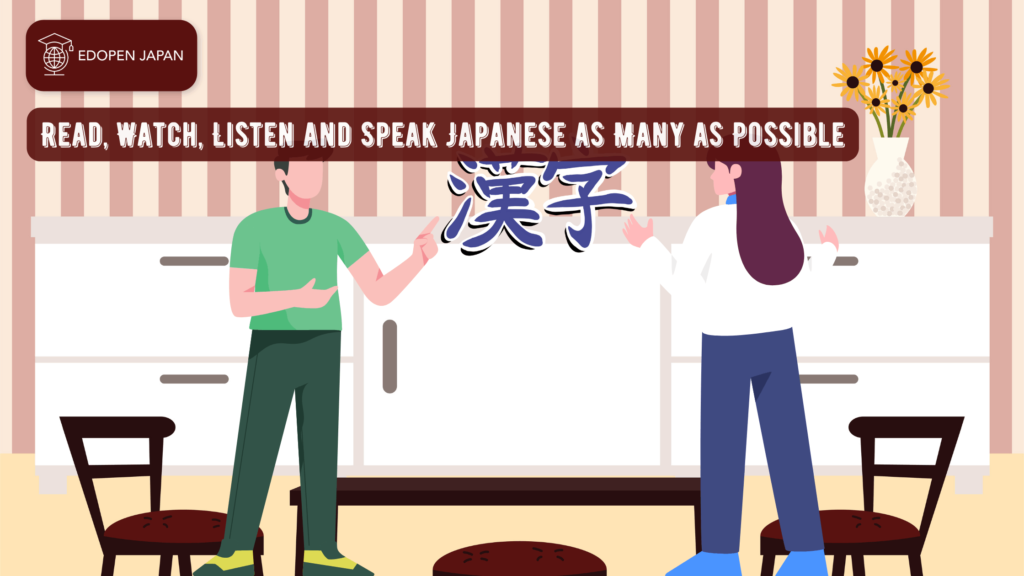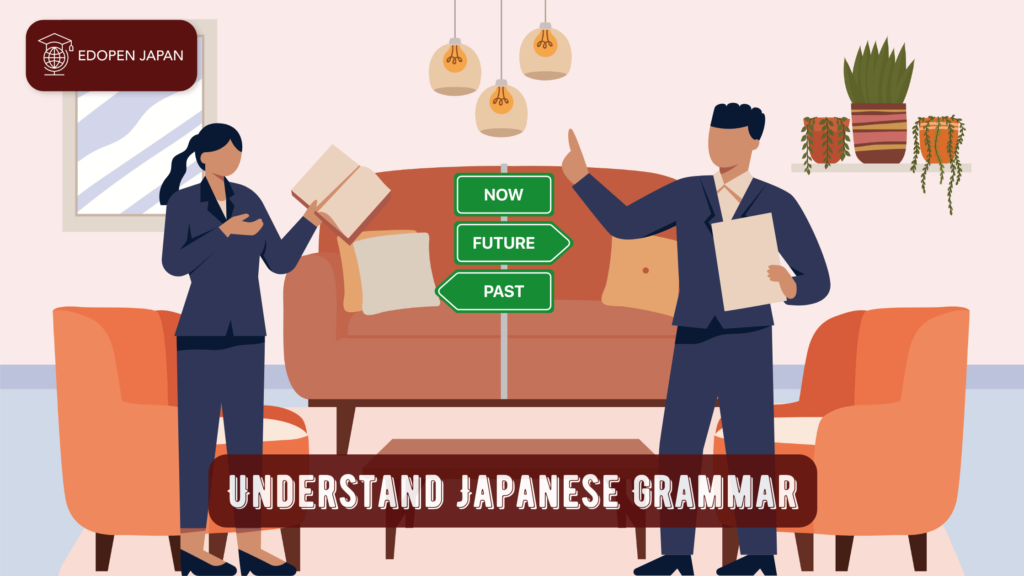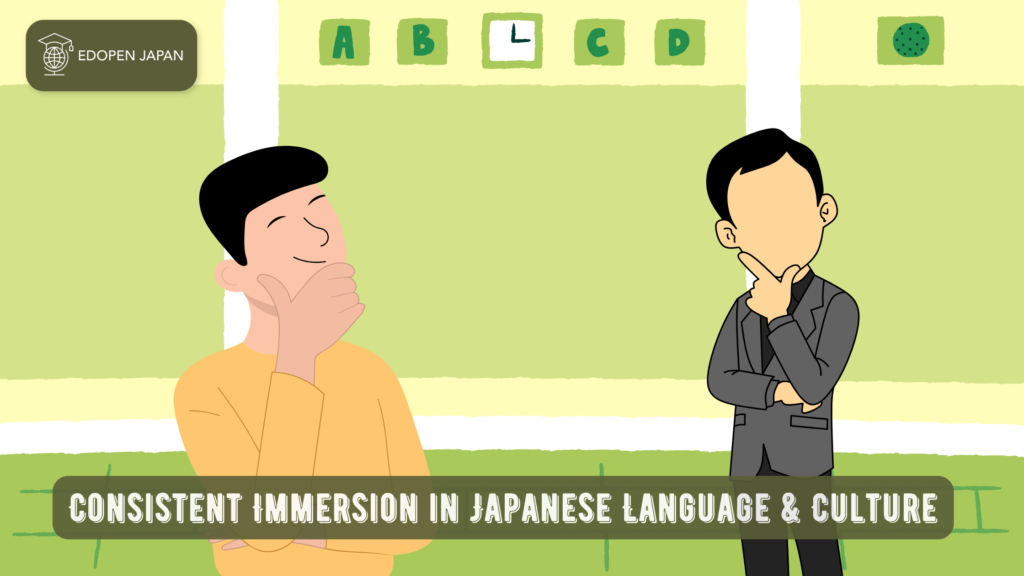Japanese is, in fact, the fifth most sought after language in the world, with a recent surge in the number of learners from the US, the UK and some European countries. There is a strong desire among people to master the language quickly, given that it can significantly enhance their credentials in both academic and real-life scenarios.
Imagine receiving a scholarship that offers you exceptional educational resources, the convenience of living with cutting-edge technology, and access to diverse Japanese entertainment and culture, including anime, movies, TV shows, and even news – all available to you without any language barriers.
Don’t forget that one can enjoy Japan’s natural beauty without major difficulties by fluently speaking Japanese, as well as for various other purposes, such as watching Anime without the need for subtitles. This explains why many individuals strive to achieve fluency in the language with speed and ease.
However, is such a feat possible, and is there an efficient method for quickly and conveniently learning fluent Japanese? The reassuring answer is YES! We shall disclose all the solutions in this article.
Alright! Let’s begin!
Contents
- 1. Set Clear Japanese-Learning Goals
- 2. Master Hiragana and Katakana as Fast as Possible
- 3. Pick Up 10 Or More New Vocabulary Words Every Day
- 4. Read, Watch, Listen and Speak Japanese as Many as Possible
- 5. Understand Japanese Grammar
- 6. Write Kanji 20 Times and Test Yourself
- 7. Choose The Perfect Books for Your Goals
- 8. Consistent Immersion in Japanese Language & Culture
- 9. Make Studying Japanese Fun!
- 10. Having A Study Partner
- Conclusion
1. Set Clear Japanese-Learning Goals

To successfully master Japanese, it’s crucial to establish precise objectives and deadlines since many individuals fail to learn Japanese and other foreign languages without setting goals.
How do you achieve this? A possible approach is committing to specific and pragmatic aims and deadlines, such as mastering hiragana
and katakana within a week’s time. There are 46 characters for each syllabary, summing up to 92 letters in total. You can acquire around 18-20 Japanese letters each day with consistent effort. This will enable you to master them within 5-6 days, and on the final day, you can review what you’ve learnt.
You can apply this approach to other Japanese language topics like Kanji, grammar, and vocabulary. Moving forward, let’s explore a more concrete technique that you can employ immediately.
2. Master Hiragana and Katakana as Fast as Possible

Why am i emphasizing this part? It is because, hiragana and katakana are the main doors for you to learn Kanji which is the essence of Japanese. Mastering hiragana and katakana in the first and foremost point is a must.
If you fail here, then you will lose your way when learning other parts of the Japanese language. Why? Because you can’t read and proceed any Japanese material you study. Please click the following button to understand what is Hiragana and Katakana in Japanese.
All study resources, including Japanese materials from beginner to advanced levels, typically provide hiragana assistance for every learner. Proficiency in kanji also necessitates the use of hiragana.
Here is tips on how to start to master hiragana and katakana:
- You can use hiragana and katakana tables
- Learn to write hiragana and katakana 20 times or more
- Use flash cards, apps, and other sources
- Play hiragana and katakana games to test how far your understanding
3. Pick Up 10 Or More New Vocabulary Words Every Day

If you have successfully mastered hiragana and katakana in the previous stages, you may proceed with memorizing at least ten new Japanese words daily.
Additionally, if you have already learned hiragana and katakana, you can test yourself by writing these new terms in hiragana or challenging yourself by writing them in katakana.
If you can memorize 10 new Japanese vocabulary words every day, you will master 1,500 Japanese vocabulary words in one month, which is equivalent to JLPT N4 Vocabulary. Consistency is the key! Do not forget to review what you have learned at the end of the week!
Further, focus on mastering difficult vocabulary and continue learning. Do not be discouraged if you have trouble understanding a word. Instead, move on to another one and maintain your motivation.
If you struggle with writing hiragana or katakana, practise Japanese words by first writing them in the alphabet.
4. Read, Watch, Listen and Speak Japanese as Many as Possible

Consistent repetition of fundamental language skills such as reading, writing, listening, and speaking is crucial for success and fluency in learning a foreign language.
Nowadays, for example, you can use many media and technologies:
- Read articles on learning Japanese at EDOPEN Japan (Learn Japanese), which are very complete and easy to understand.
- Watch anime, J-drama, movies or the like from various media.
- Listen to Japanese hits like J-POP, podcasts and other media through internet when you have time.
- Practice speaking by repeating as often as possible the vocabulary and phrases you read in articles, listening to interesting phrases from anime, or even singing Japanese songs you listen to for relaxation.
Mastering all the material you learn won’t take long. The more frequently and consistently you revisit it, the quicker you’ll attain the level of proficiency you aspire to in Japanese. Remember, consistency is the key.
5. Understand Japanese Grammar

Japanese grammar is straightforward but comprehensive, with many rules to consider at every level. Therefore, it’s crucial to study it in detail. The fundamental principle of learning Japanese grammar is to comprehend the meaning and function of every vocabulary word used and the context in which it is used.
This is essential, as the same vocabulary word can have different implications in different situations depending on the accompanying nouns or adjectives.
It is crucial to comprehensively grasp the meanings of Japanese sentences to avoid misunderstandings and inaccuracies in using grammar, which could lead to further confusion.
However, mastering grammar allows for greater flexibility in sentence construction, ultimately enhancing Japanese speaking skills at a quicker pace.
6. Write Kanji 20 Times and Test Yourself

Kanji forms a fundamental part of the Japanese language and mastering it is crucial for mastering Japanese itself. Additionally, becoming well-versed in kanji leads to improved Japanese reading ability.
Kanji imparts meanings, nuances, and character to words and phrases, facilitating comprehension for any reader. Often, recognition of even just one or two kanji allows for quick comprehension of a sentence, and it is even possible to finish reading a Japanese novel in just a few hours.
A very reliable method to master kanji is repetition. To better understand, you could try writing one kanji character 20 times, and you may find that you have mastery of it after the 10th attempt. As for the rest, gauge how much practice you need for each individual character.
It is noteworthy that each kanji also embodies an image of its intended object. Visualization of the object represented by a kanji character can make it easier to recall. The greater your proficiency in kanji, the clearer it becomes that the Japanese language possesses a striking beauty, profound significance, pragmatic utility, as well as inherent simplicity.
7. Choose The Perfect Books for Your Goals

Learning with books is highly recommended, not only because gadgets can easily get damaged, stuck or cause eye fatigue. This is particularly true if you select the appropriate book to achieve your learning goals.
There are currently multiple bestsellers on the market that cater to learning Japanese at all levels, from beginner to advanced. These books also provide detailed study plans, practice questions, and course outlines for comprehensive discussions.
Using books to study Japanese enhances my concentration, speeds up my learning, and deepens my understanding, while allowing me to monitor my progress more effectively. The table of contents provides insight into the topics to be covered and the attainable objectives.
This method is far superior to reading online resources, which can be extensive, overwhelming, and time-consuming. Therefore, it is crucial to acquire proficiency in Japanese by utilizing instructional books suitable for your desired skill level which will enable you to efficiently and rapidly achieve mastery.
8. Consistent Immersion in Japanese Language & Culture

According to some studies, immersion can help foreign language learners develop a native-like way of thinking. And many would agree. This immersion can be achieved through various means, such as observing and imitating the pronunciation of native speakers by attending a class where the teacher is a native speaker, such as at a language school.
Many have experienced the difference between learning Japanese from a professional teacher who is “not a native speaker and not in Japan” and when we learn directly from a “native speaker directly at a language school in Japan”. We will remember vocabulary more easily, better and faster.
Not only that, but intensive immersion in Japanese, for example by enrolling in a language school in Tokyo for 1 year, helps many students understand Japanese language and culture faster. For example, we don’t need to translate into our native language in certain situations because we are used to it and can respond automatically to conversations or general communication.
9. Make Studying Japanese Fun!

Did you know that incorporating fun into learning can stimulate neurons in the brain that release oxytocin (the pleasure hormone), dopamine (the motivation and thinking hormone) and norepinephrine (the energy and attention hormone)? This can greatly enhance memory and learning.
Additionally, learning Japanese in an enjoyable way can aid in thinking and retention, resulting in mastering the language at a faster pace.
Many individuals express an attraction to studying Japanese due to their love of anime, comics, and other similar forms of Japanese entertainment – all of which represent Japan’s enjoyable and stunning characteristics. This facilitates the process of acquiring the vocabulary and grammar at a swifter and more efficient pace.
You can have fun while learning Japanese by doing things you enjoy, for example:
- Playing Japanese games
- Learning Japanese with apps
- Learning Japanese with flashcards
- Listening to Japanese music
- Singing in Japanese
- Learning in a place you like
- Learn and play Japanese tests with friends and more.
10. Having A Study Partner

For the final method, it’s crucial to mention one more significant point you must know. Learning Japanese alone is acceptable, but having a study partner can offer many benefits you may not have considered before or been aware of.
For example, if you have a learning partner:
- You can exchange information and motivation
- Find a different way of thinking or a different point of view, even a different method that will enrich you
Learning Japanese with a partner has its advantages. It helps you stay motivated and focused as you tackle the challenges together. By teaming up, you reduce the potential for procrastination that could hinder your progress.
You can look for one in online and offline Japanese language schools, various communities, and on the Internet. Finding a study partner is easy and there are many ways to do so. Take the time to find your perfect study partner and enjoy the benefits.
Conclusion
These tried-and-tested techniques have proven effective for countless individuals endeavoring to learn Japanese. Several of the tips are intertwined, so select Please choose the method that suits you.
Do any of these approaches or concepts resonate with you? Please feel free to share your personal experience with learning Japanese in the comments section.
If you are interested in learning about the Japanese language and culture, please follow our latest articles. We hope to provide clear and concise information to aid in your understanding. Best of luck in your language learning journey!













